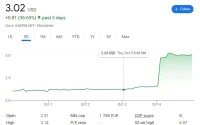Generated Title: States Balk at Trump's "No Tax on Overtime": A Numbers Game
The Great Decoupling
The promise of Donald Trump's "One Big Beautiful Bill Act" (OBBBA) was simple: lower taxes for everyone. But as states grapple with the reality of these federal changes, a different picture is emerging. Several jurisdictions are choosing to "decouple" from key provisions, most notably the "no tax on tips and overtime" clause. Washington D.C., Illinois, Colorado and New York are leading the charge, but why? Is it just political opposition, or is there a deeper financial calculation at play?
Richard Pon, a San Francisco-based CPA, claims the OBBBA "is causing havoc on state budgets as many conform to the Internal Revenue Code, and these states are seeing big drops in forecasted revenue." That's a strong statement, but let's unpack it. The core issue is "conformity." States have three options: rolling conformity (automatically adopting federal rules), static conformity (updating annually via legislation), or selective conformity (picking and choosing). Many states, facing depleted COVID-era aid and economic uncertainty, are opting for the latter.
D.C.'s situation is particularly stark. The city is projected to lose up to $1 billion in revenue over the next four years due to the loss of federal government-related jobs. The Council’s temporary decision to separate its income tax laws from federal tax provisions excludes a $6,000 bonus deduction for older adults, the "no tax on tips" provision, immediate expensing of research and development (R&D) costs, and special depreciation allowances for businesses. Emergency Tax Bill Ends $6,000 Senior Deduction and Tip, Overtime Tax Breaks in D.C.
The projected savings? $95 million in fiscal year 2025 and $567 million through fiscal year 2029. (Those are the projected savings, mind you. Actual results may vary.)
This isn't just about plugging budget holes. D.C. plans to use the retained revenue to create a new local Child Tax Credit of $1,000 per child and expand the city’s Earned Income Tax Credit. It's a redistribution play, shifting tax burdens to fund specific local priorities.
The Devil's in the Details (and the Add-Backs)
The "no tax on overtime" provision seems straightforward, but the implementation is anything but. Take Colorado, for example. They rejected the federal provision, but instead of simply ignoring it, they're adding a line to the state tax form: “Excess federal deduction for overtime pay.” Taxpayers must report the amount deducted federally and add it back for state purposes. It’s a bureaucratic dance designed to claw back revenue.

New York is doing something similar, adding new codes for “Add-back of exempt tip income” and “Add-back of exempt overtime pay” on its IT-225 form. These "add-backs" are crucial. They highlight the fact that while the federal tax burden might be reduced, the state burden remains unchanged.
How does the no tax on overtime work at the Federal Level? Under the federal law, hospitality and service workers could deduct up to $25,000 in tips and $12,500 in overtime pay for single filers (with higher amounts for joint filers). Now, imagine you're a server in D.C. working long hours. You see this federal tax break, but then find out it doesn't apply locally. The frustration is palpable.
I've looked at hundreds of these policy changes, and this particular decoupling trend is unusual. It's not just about revenue; it's about control. States are asserting their right to manage their own tax systems, even if it means going against the federal grain.
The Institute of Taxation and Economic Policy reports that greater conformity to federal rules makes state tax returns more “practical” for taxpayers, with “fewer calculations to make.” But "practical" doesn't always translate to "beneficial" for the state's coffers.
Is This Just the Beginning?
So, what's the broader trend? Reuters reports that at least four states will accept most OBBBA individual return provisions in 2025: Iowa, Montana, North Dakota, and Oregon. Several states will not conform, including California, Connecticut, Hawaii, and Massachusetts. States like Georgia, Maryland, and South Carolina are waiting to address changes in the 2026 legislative session.
The key takeaway? When you file your 2025 taxes in the 2026 filing season, pay extra attention to your state return. The tax breaks you thought you were getting may only apply to your federal taxes.
States Playing Their Own Game
The trend of states rejecting federal tax breaks isn't just about revenue shortfalls; it's a power play. States are saying, "We'll decide what's best for our residents, regardless of what Washington dictates." It's a complex game of numbers, and taxpayers are caught in the middle.










